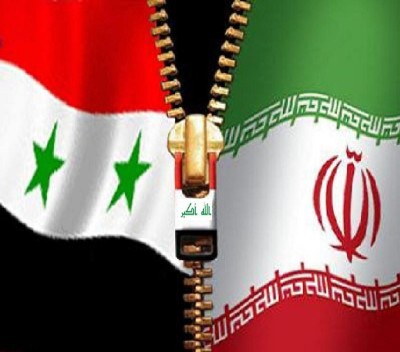LATEST: New Envoy to International Atomic Energy Agency Named
Backing up our Friday analysis of co-operation between Iran and the Syrian regime over propaganda, Fars News Agency — linked to the Revolutionary Guards — headlines this morning, “Two Phone Calls Reveal Use of Chemical Weapons in Syria’s Homs by Rebels“.
The article, almost a word-for-word reproduction of a Thursday post by Syrian State news agency SANA, claims a fighter of the “Shuhada al-Bayada Battalion” called “his boss” — “Adulbasit from Saudi Arabia”, a financier based in Cairo. The fighter allegedly said one of the achievements of the Battalion was the successful use of chemical weapons in Deir Ba’alba near Homs, Syria’s third-largest city.
Fars also asserted that, in another phone call, two insurgent groups tried to obtain two cylinders of Sarin Gas from the Barzeh section in Damascus, to be used in Homs.
The stories are part of an attempt to pin blame for Wednesday’s use of chemical weapons near Damascus, killing at least 1,360 people, on the opposition. On Thursday, Iranian Foreign Minister Mohammad Javad Zarif said, “If the news is correct, the crime has certainly been committed by terrorist and takfiri [heretic] groups, because they have actually shown that they are ready to commit any crime.”
Fars opened a bureau in Damascus last year, and its coverage of the Syrian conflict has long bore striking similarities to claims in Syrian State media.
Latest Updates, From Top to Bottom
New Envoy to International Atomic Energy Agency Named
The regime has appointed Reza Najafi as its envoy to the International Atomic Energy Agency.
Najafi formerly served as head of the Foreign Ministry’s disarmament office.
He replaces Ali Asghar Soltanieh, who was Iran’s representative to the IAEA since 2005.
Rouhani Measured in 1st Comments on Syrian Chemical Weapons Attack
In his first public comments on Wednesday’s attacks by Syrian forces near Damascus, President Rouhani has been more measured than the propaganda in Iranian outlets — he refrained from casting blame on insurgents:
Many of the innocent people of Syria have been injured and martyred by chemical agents and this is unfortunate.
We completely and strongly condemn the use of chemical weapons….
The Islamic Republic gives notice to the international community to use all its might to prevent the use of these weapons anywhere in the world, especially in Syria.
Rouhani appeared to be careful in not attributing blame for the chemical attacks on either the Assad regime or insurgents, even though the official line out of Tehran has been to blame the insurgents for the attack.
Press TV, however, frames Rouhani’s comments to fit with this line, adding a paragraph noting that:
The government in Damascus says Takfiris have used chemical weapons on several occasions, including an attack in the region of Khan al-Assal in Aleppo Province on March 19, where over two dozen people died. A Russian-led inquiry confirmed that the militants operating in Syria had carried out the chemical attack in Khan al-Assal.
While Rouhani does not confront the West over the chemical attacks, in later comments condemning the Israeli airstrike on Lebanon, the President talks of “plots” to destabilize the Middle East, saying that these plots focus on Syria and Egypt, which “only benefit Israel at the expense of Muslims”. Notably, however, Rouhani does not refer to Israel as “the Zionist regime”.
Rouhani: I’m Not A Miracle Worker
A sign of difference between the Rouhani and Ahmadinejad administrations?
In a series of tweets earlier this week, President Hassan Rouhani noted that he does not have supernatural powers:
#Rouhani: [Unlike my predecessor, Ahmadinejad, claimed] my government is not connected to the heavens, and I am not a miracle maker.
— Hassan Rouhani (@HassanRouhani) August 20, 2013
I'm no miracle maker. National unity, building bridges not walls, hard work, #dedication, #prudence and #hope however might lead to miracles
— Hassan Rouhani (@HassanRouhani) August 20, 2013
Foreign Minister: Sanctions Will Not Change Our Policy
Foreign Minister Mohammad Javad Zarif has declared:
Sanctions create pressure on the people but will not cause a change in policy. Westerners must understand that pressure does not lead to policy change….Sanctions harm normal people, but these people do not expect the country to disregard their rights.
At the same time, Zarif denied that Iran was pursuing a militarized nuclear program:
We do not view nuclear weapons as ensuring our security. Nuclear weapons have no place in Iranian doctrine, and will not only not lead to the country’s security, rather they are a threat for our national security. We are a powerful country and fundamentally do not need nuclear weapons.
Zarif said that President Rouhani would make an announcement on negotiations with the 5+1 Powers (US, Britain, France, Russia, China, and Germany) within the next two weeks.

